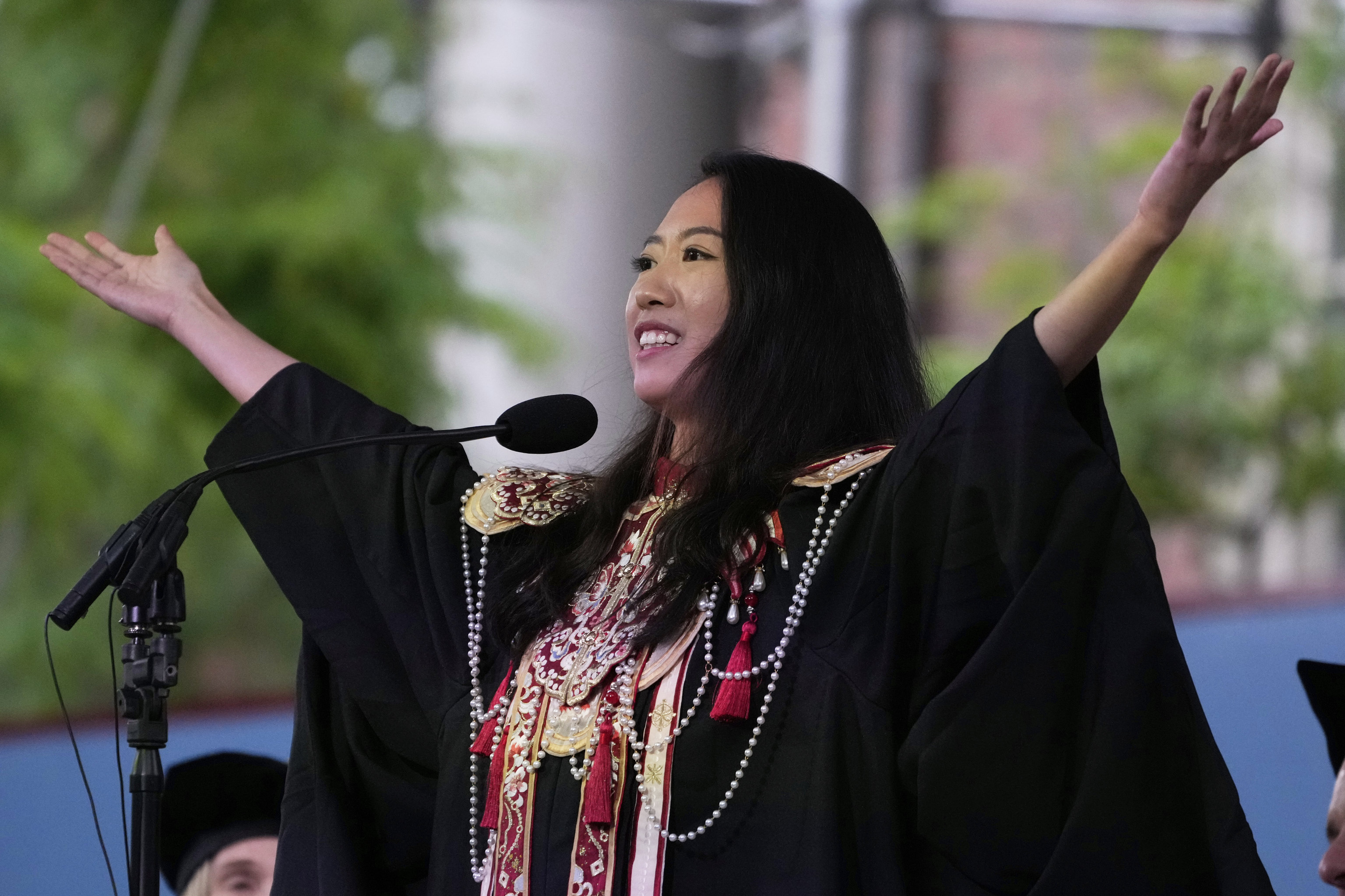Chinese students studying abroad who return to their country are known as "haigui," which literally means "returning home from overseas." Although the same word has a homophone that is often referred to in a joking tone: "Sea turtles." Many of these "sea turtles" are children of high-ranking officials of the ruling Chinese Communist Party (CCP), who have been sending their offspring to study at the best universities in the West, especially in the United States.
The daughter of the supreme leader, Xi Mingze (32 years old), was enrolled at Harvard University in 2010. She is the only known descendant of the marriage between President Xi Jinping and his second wife, Peng Liyuan, a famous singer who left the stage and television sets to become the first lady.
There is such a tight lid on information in China regarding the private lives of political leaders and their families that the vast majority of citizens are unaware that Xi Jinping has a daughter, let alone that she studied in the US. American media did publish some anecdotes about Xi Mingze's time at Harvard, such as her very discreet profile and the use of a fake name. However, there is scarce information and photos of her.
Last week, the spotlight was on China's connections with American universities when the Trump administration revoked Harvard's authorization to enroll international students, with the Department of Homeland Security justifying this decision due to alleged ties between the university and the CCP.
After the university sued the Trump administration, a federal judge temporarily halted the ban. But a few days ago, in another attempt to restrict the entry of international students, Secretary of State Marco Rubio ordered US embassies and consulates worldwide to stop scheduling interviews for student visas.
On Wednesday, Rubio directly targeted China. "The United States will begin revoking visas for Chinese students, including those with ties to the Chinese Communist Party or studying in critical fields," the secretary stated in a post.
In the Asian giant, the omnipresent CCP has over 100 million members. Party membership has traditionally been a stepping stone to better jobs, higher salaries, and greater respect within communities. However, holding a party card does not necessarily equate to having any kind of connection to power.
The spokesperson for the Chinese Ministry of Foreign Affairs, Mao Ning, declared on Thursday that "the unjust revocation of visas for Chinese students by the United States, under the pretext of ideology and national security, has seriously undermined their legitimate rights and interests and disrupted interpersonal exchanges between the two countries." Mao added that the Trump administration's decision "exposes the lies about freedom and openness that the US has constantly touted and will only further damage its international image and credibility."
China, after India, has the second-highest number of international students pursuing higher education in the United States (277,398 students). Some of them, due to family tradition or ideology, are members of the CCP or have relatives who are. Under the guidelines of the Trump administration, these Chinese students may have their days numbered in American universities.
With the Republican leader's new isolationist crusade, Xi Jinping's daughter would never have been able to study at Harvard. Back in 2002, when relations between Washington and Beijing were much better and the White House did not see China as a threat or its major competitor, the Kennedy School of Government even had a three-month program to train Chinese officials in Administration. This was done in collaboration with Chinese institutions until the program was eliminated years later.
Two of the last three party leaders, Zhao Ziyang and Jiang Zemin, had grandchildren who studied at Harvard. Wen Ruchun, the only daughter of former Prime Minister Wen Jiabao, also attended Harvard. A granddaughter of Jia Qinglin, former Mayor of Beijing and former member of the Politburo Standing Committee, the party's top governing body, went to Stanford University. And let's not forget Ba Guagua, son of President Xi's public enemy, the disgraced Bo Xilai, who went from being a clear contender for leadership in the Asian superpower to a life sentence for abuse of power and corruption. His son, Ba, studied Law at Columbia.
According to a report published in 2023 by the Brookings Institution, a Washington-based think tank, 20% of the members of the CCP Central Committee, composed of over 370 senior officials, have studied abroad, mainly at Western universities.
This week, while Trump continued his attack on Harvard, threatening the university with withdrawing $3 billion in previously granted funds for scientific and engineering research grants, some universities in China and Hong Kong were promoting themselves to accommodate those foreign students rejected by US authorities.
In Hong Kong, the local government instructed universities to open their doors to the "best talents" affected by the restrictions at Harvard, where foreigners made up around 27% of the student body in the last academic year, with China contributing between 1,800 and 2,300 students each year. "The university will offer unconditional offers, simplified admission procedures, and academic support to facilitate a smooth transition for interested students," stated the University of Science and Technology in the former British colony.
Hong Kong has five universities among the top 100 in the Times Higher Education world rankings of higher education institutions and until a few years ago was considered one of the best and freest academic settings in the world. That changed - in terms of freedom - after the pro-democracy protests in 2019, when Beijing stripped away much of the autonomy enjoyed by the financial center. In education, it included doses of patriotism and censorship of freedom of expression.
